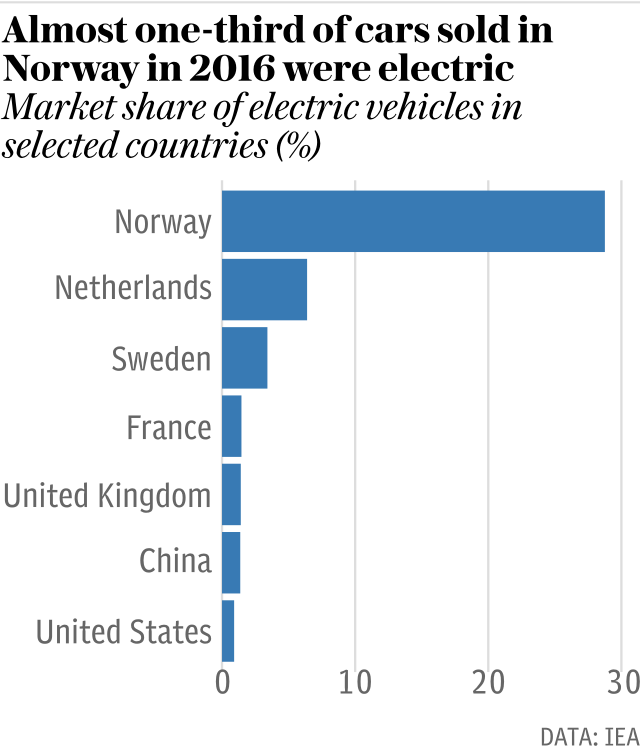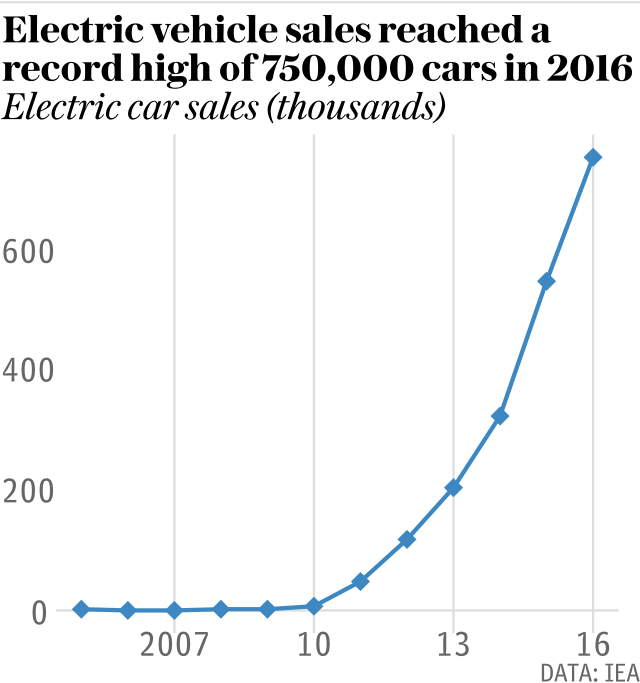National Grid set to tackle electric vehicle boom with 'smart charging'

There could be as many as 11 million electric vehicles on British roads by 2030 and 36 million by 2040, in what would be a major upheaval for the UK’s energy system.
National Grid’s latest report on the future energy system overshoots the Government’s own targets which call for an end to petrol and diesel car sales by the same year.
The acceleration of the electric vehicle market will bolster demand for electricity, which is already in relatively tight supply, but the dual growth in battery storage will dramatically reduce the amount of new power generation projects which will be needed.
This time last year National Grid data estimated that the electric cars could increase peak demand electricity by as little as 8GW by 2030.
In its latest report the same amount is likely to be needed only by 2040 if consumers charge vehicles at off-peak times and through vehicle-to-grid technology.

Fintan Slye, of National Grid, said the growth of electric vehicles is one of the major trends in the system operator’s scenario planning which is used within the industry to inform decision making.
“We are already operating in an exciting period of change – a trend which is set to continue, certainly up to 2050 and beyond,” he said, meaning that National Grid’s work balancing energy supply and demand “will become increasingly complex”.
National Grid expects “smart” energy use, which uses digital algorithms to charge and release energy from storage at the most cost effective time, will play a major role in shaping the energy system by the end of the next decade.

The Government has already kick-started a major battery development boost to help to meet the growing demand for efficient storage technologies.
In all of its scenarios National Grid expects a “high growth of electricity storage” which becomes “increasingly important in balancing renewable output”.
The rising demand for electricity will be met, in part, by more onshore wind power generation. The projection assumes that a policy shift will open the door for more wind projects despite the Conservative government campaigning on the view that no support should be given to large-scale projects in England.
National Grid said it assumes that that “there will be more consumer acceptance of onshore wind” meaning an increase in wind power generation across all of its scenarios.
“Alongside this, we have assumed a facilitative policy environment for local wind schemes,” it said.

Claire Perry, the energy and clean growth minister, has hinted at a return for new onshore wind projects in communities which want them. She has also fired the starting gun on an electric vehicle boom by ruling out the sale of traditional combustion engine cars from 2040.
The Government’s "Road to Zero" report, released earlier this week, stopped short of a total ban on sales of petrol and diesel vehicles by 2040 but still expects to reduce vehicle emissions to zero by 2050.
“As we move towards a low carbon economy, we want to position the UK as a leader in clean and efficient power for transport and heating,” said Ms Perry.
“Earlier this week we announced significant investment in electric vehicle charging infrastructure, including £30m R&D investment in smart charging points.
“With demand for electricity expected to increase, gas has a key role to play in our energy mix. As part of our modern Industrial Strategy, we will continue to explore options for safe and secure domestic supplies of gas, such as hydrogen, biogas and natural gas from shale,” she added.

